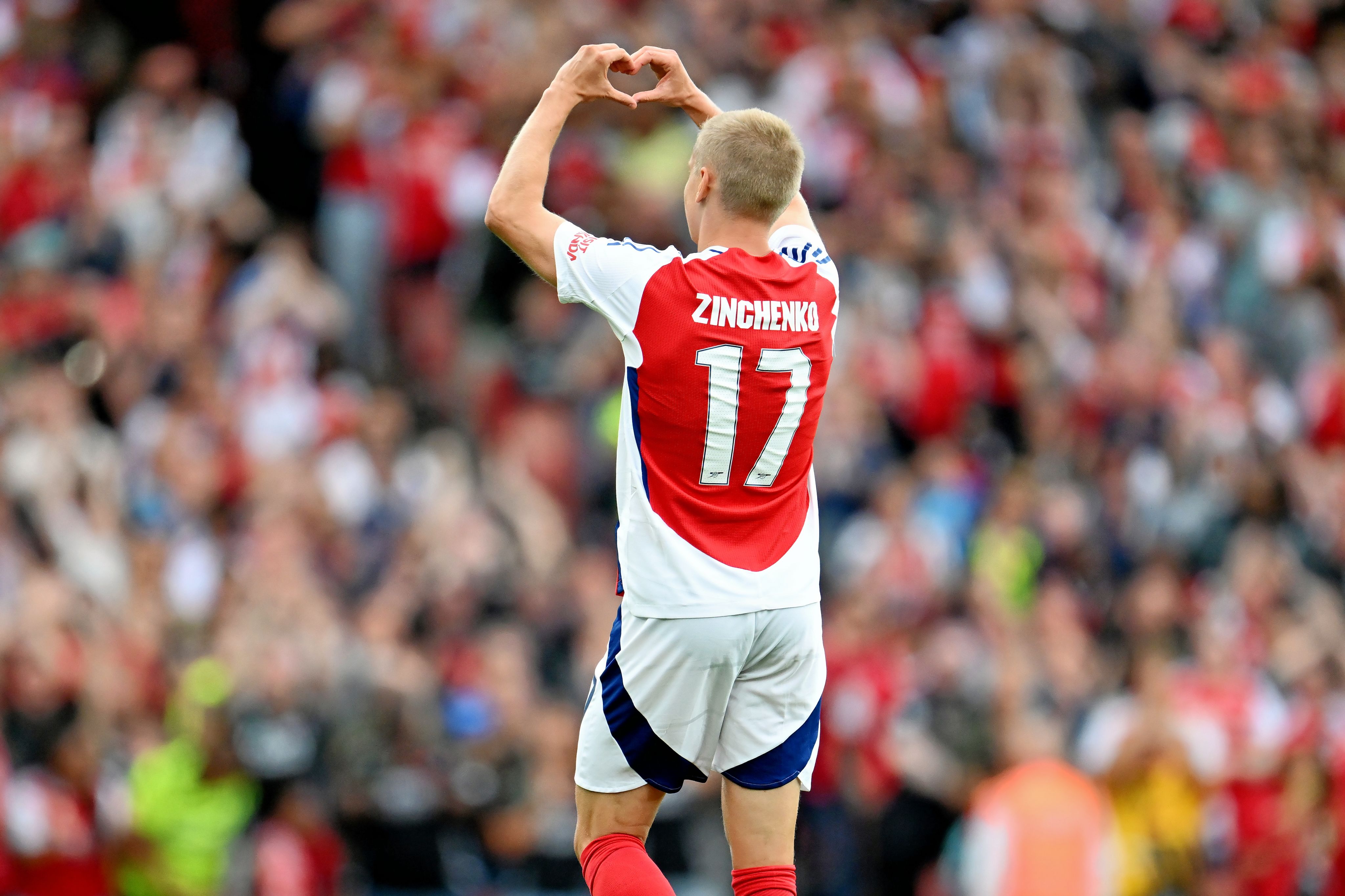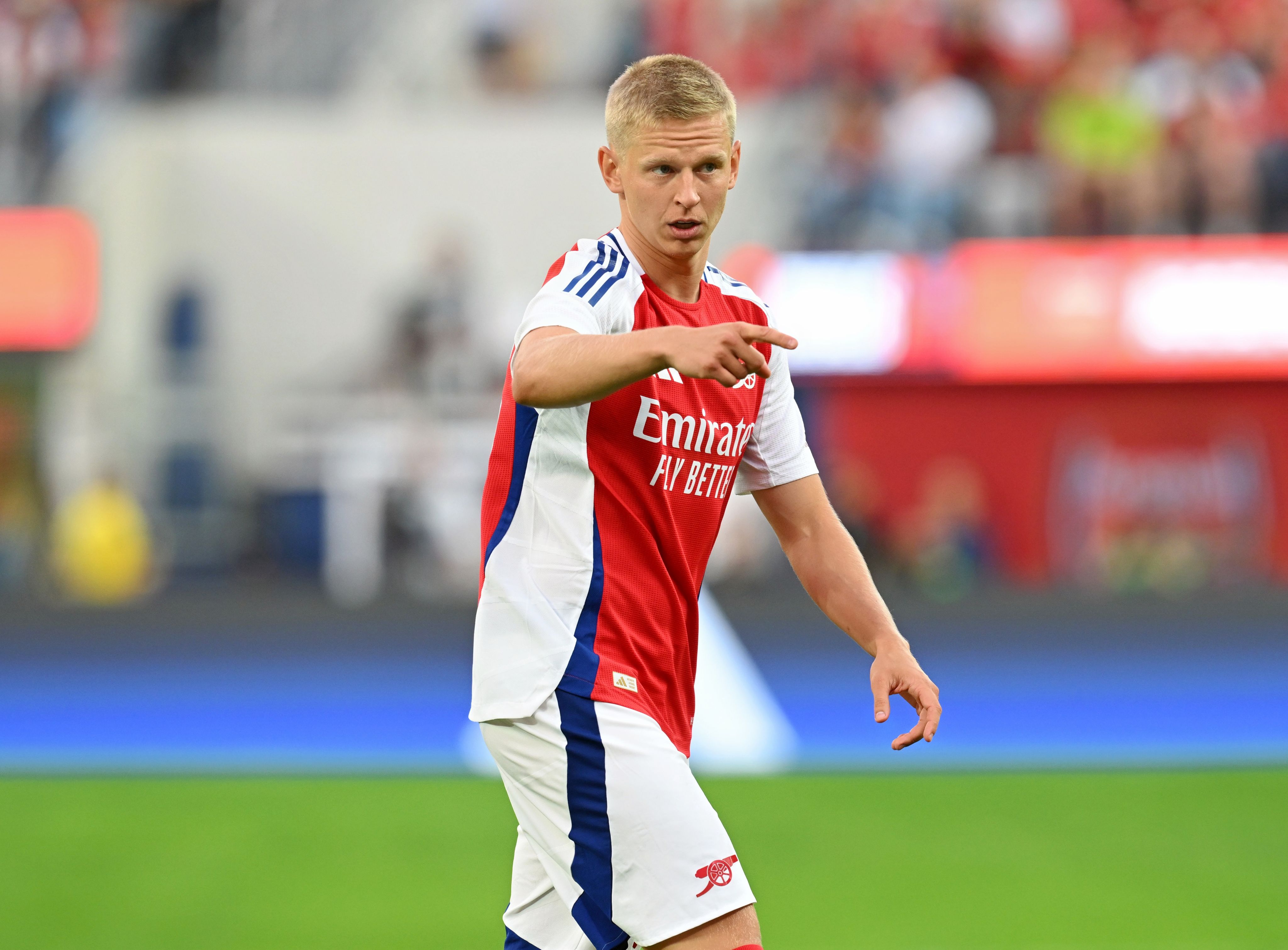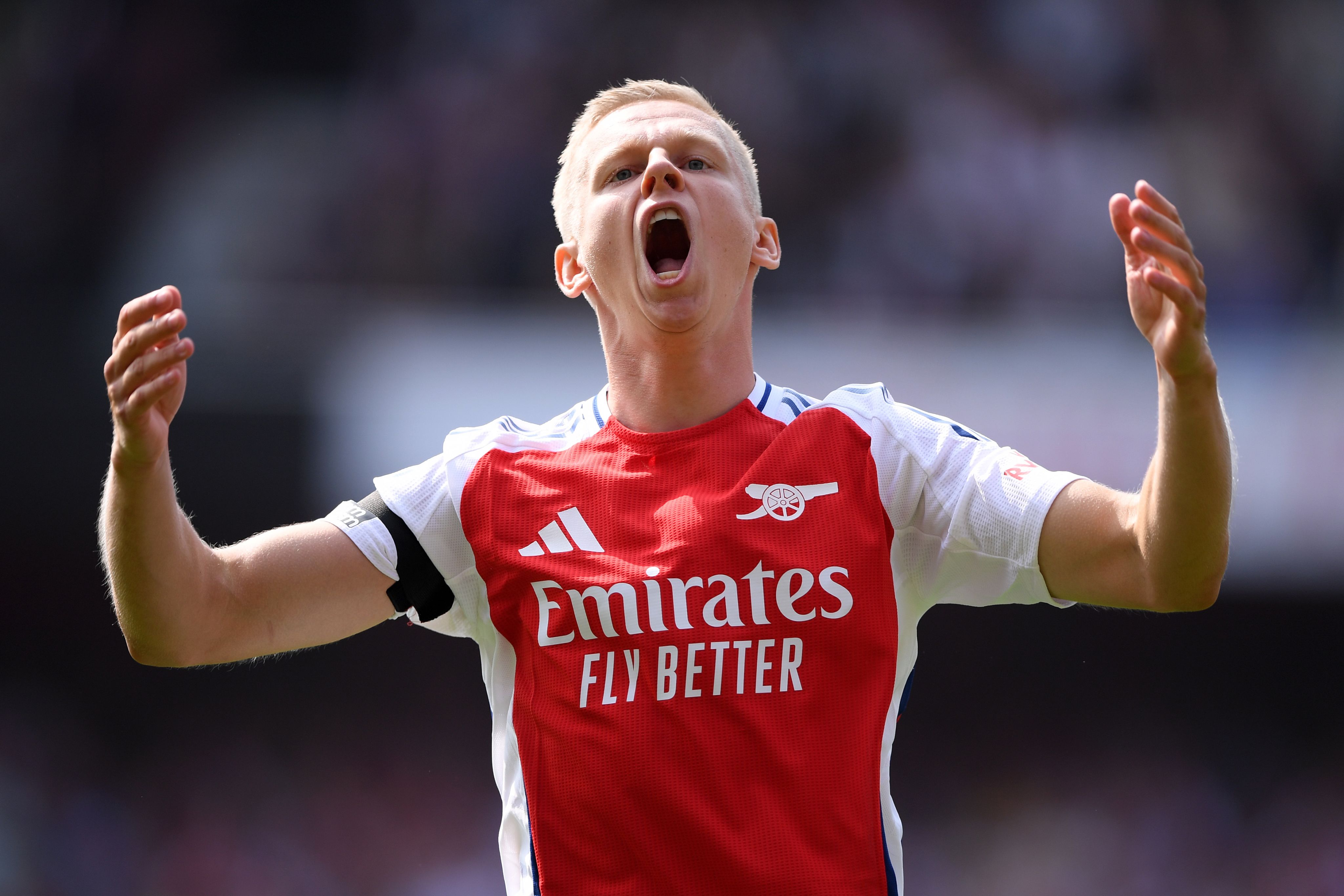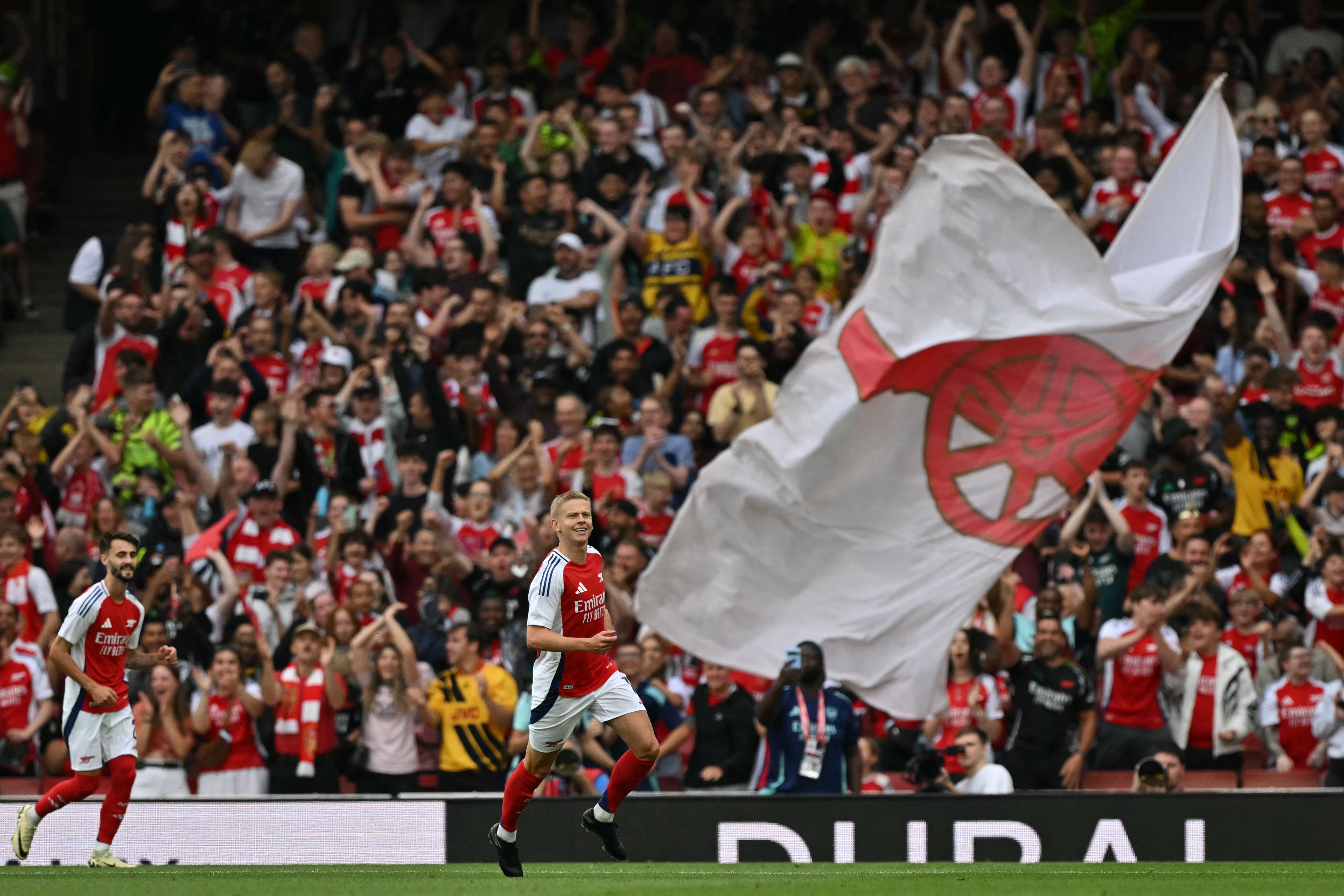Alex's evolution: How Zinchenko continues to adapt
OUR DEFENDER ON THE LESSONS HE HAS LEARNED THROUGHOUT HIS CAREER, HIS FOOTBALLING PHILOSOPHY AND WHAT HIS FUTURE PLANS ARE

Alex Zinchenko has never stopped developing and analysing during his career – the modern sport demands it.
But the biggest lessons he learned, and the foundation of his whole career, remain from his very early days. In fact it wasn’t a coach who first instilled words of wisdom that have stood him in good sense ever since, it was his mother, when a young Alex returned in an emotional state from his very first training session.
“The first lesson that comes to mind is from my mum,” he recalls. “When I came back from my first training session, when I was about seven, I came home and was nearly crying, complaining that nobody was passing me the ball because I was the youngest one there.
“There were guys who were four or five years older than me, and they didn’t want to pass. So my mum said, ‘OK, if nobody is passing you the ball, then go and get the ball!’ That was the lesson that changed me and I’ve kept it with me all my life.”
The young Alex was essentially told to go and make things happen, and he’s done so ever since.
“My mum gave me a lot of inspiration to be honest. It wouldn’t have happened had she not seen the fire in my eyes. She saw that I really wanted to become a professional football player. Then she gave her all to make sure that the dream could happen. So that was an extra motivation for me as well to prove her right.”
"my mum said, ‘OK, if nobody is passing you the ball, then go and get the ball!’ That was the lesson that changed me"


It wasn’t long until Alex started looking beyond his family and into the sport to find role models. “For all of us, especially my generation, Andrei Shevchenko was the idol,” says the Ukraine international. “I also really liked Ronaldinho when I was younger. When he was at Barcelona, that was the time when I was looking up to these players. So those two were on another planet for me.”
Born in Radomshi, northern Ukraine in December 1996, Alex joined the academy of his local team before moving to FC Monolit Illichivsk in 2008. He credits that first move to an academy as a formative moment in his career, when the routines and demands of a life in football became second nature.
“When I was 11 or 12, that was the age when I moved far away from home,” he says. “I was in a football academy and that’s where I learned the football basics and the foundations of football, from a mental point of view.
“Their routine was incredibly tough, I used to wake up at 6 o’clock every morning, do my first session, breakfast, then school, lunch then another session. So it was intense, and for a long time. All the basic stuff and technical skills, doing it every single day it became like brushing my teeth. It was routine.
“My coach at that time was an inspiration to me as well, he really gave me a lot in terms of basic stuff, and he made me want to work harder.”
Football dominated his life from that age, and all his time was devoted to extracting the very most of his potential. It meant schoolwork had to move down his list of priorities, even though he kept much of his desire to learn.
“I’ll be honest with you, I was really good at school until about Year 6 – or when I was about 11. I was really good, but then I started to forget homework and things like that because I was more focused on football,” he admits. “This is not good advice for the next generation, but I sacrificed my school work a bit at that time.
“If you are able to manage both, then that is perfect, so you should definitely try to do that. I was still good at school, but it went down a bit. I was very good at mathematics, and then physics as well, but football took over.”
Over the past 16 or 17 years since those early steps in academy football, the game has changed, and in a lot of ways Alex has helped change it.
He was right at the vanguard of the inverted full-back trend, and his position sums up perfectly the evolution of football over the years. So how has training and preparation changed from his first days at Monolit Illichivsk, and then the Shakhtar Donetsk youth system as a teenager?
“It’s changed so much,” he says. “Football is growing so fast and now modern football is much faster than before. You have to be able to be fully intense for the whole 90 minutes. Also in terms of tactics things have changed. You need to learn a lot more, be fully focused in every single second – especiallyin the Premier League. You switch off for one second, you will be punished.
“Video analysis is a big part of our job too, and without that it’s so hard to improve yourself. You always have to see and analyse what you have done right, what you have done wrong, and then try to avoid making those same mistakes in future. It’s how you move on. In modern football all these aspects are important because they really work.
“The things I liked in training when I first started are the things I still like now though,” the 27-year-old adds. “I really liked possession and positional games in boxes. I really like to be on the ball as much as possible in any drill, and it’s always been that way, it still is now.”
"modern football is much faster than before. You have to be able to be fully intense for the whole 90 minutes"


As a deep thinker, and obvious lover of the sport, does Alex see himself moving into coaching once his playing days are over?
“Well, I hope it is still a long way off,” he smiles. “I hope to have a lot more time as a footballer, but yes I keep it in my head that maybe one day I can be a coach. I really want to stay in football, but I don’t know just how yet to be honest.
“I’ve learned from all of the managers I’ve worked with in my career. They are all different and have different things about them, but what they all are is demanding. So demanding, They are obsessed with winning games.
“At the moment I would say the guy in the squad who would make the best manager in future is Jorginho. He has the best football brain. Everything he says really works, and I learn from him as well.”
So what style of manager does Alex think he would be? Could he sum up his footballing philosophy?
“Definitely at the moment I would want my team to be on the ball and dominate. That doesn’t mean you have to run less – it means you have to enjoy playing football and be so aggressive without the ball. You need to be so compact as a team, a lot of other things as well – too many to list!”

















